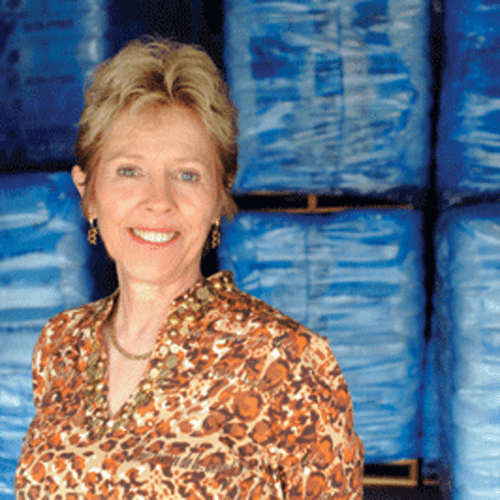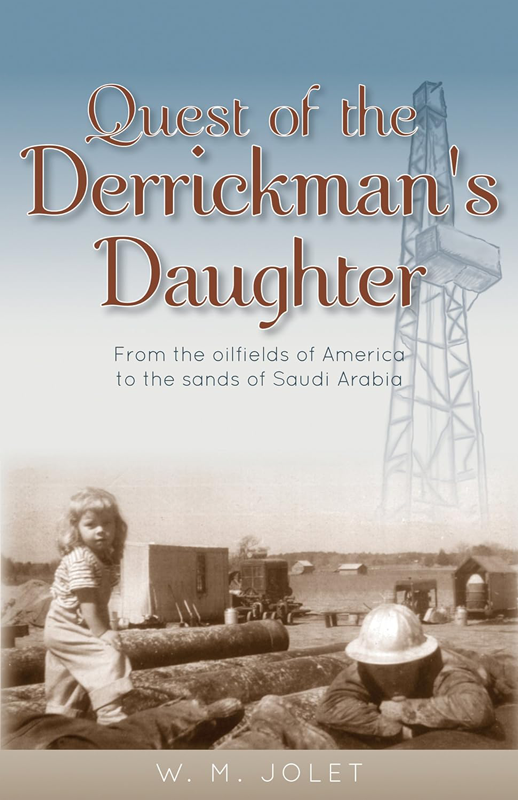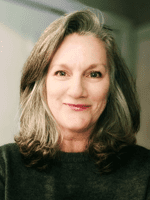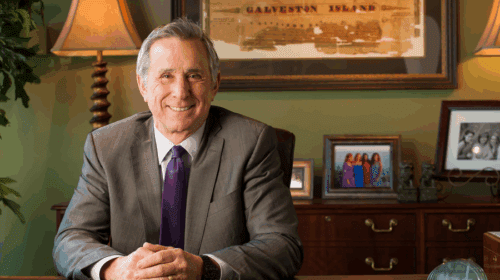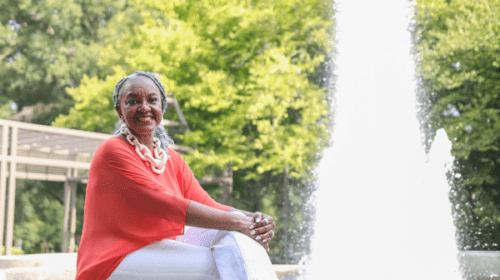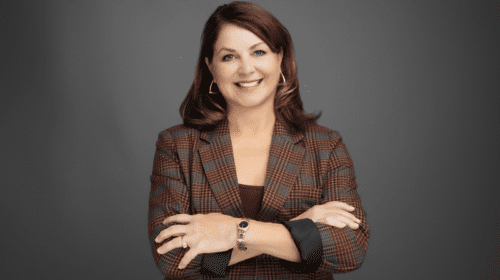Despite the influence she has had on women from as far afield as Lafayette, Louisiana, to Saudi Arabia, Bonnie Maillet has always been more comfortable promoting other women and their achievements than she is talking about her own. I have known Maillet for nearly a decade and it’s taken that long to pin her down for an interview. She declined to be interviewed when I wrote Breaking the GAS Ceiling: Women in the Offshore Oil & Gas Industry because she had never worked offshore (although the products her company sold were used offshore), but was more than willing to offer a quote about her friend, water safety pioneer Margaret McMillan, who developed many of the safety standards adopted by the oil and gas industry. “[She] is responsible for saving more lives on water than any other person on this earth.”
Maillet introduced me to Jerry Tardivo Alcoser, now general manager of operations for Chevron in the San Joaquin Valley, whose story is part of the book. Along the way, she also connected me with Lori Davis, president/CEO of Rig-Chem; Mia Spicer with Baker Hughes; and Dave Payne, who retired as Chevron’s vice president of health, safety and environment, whom she admires for his allyship and advocacy for women in the energy industry, and she is delighted by the fact that his daughter, a petroleum engineer, followed him into the oil and gas business.
It’s a story that resonates with Maillet, who literally grew up in the oilfields. Some of her fondest memories are of spending time on rig sites with her stepfather, Arlie Daniel, whom she considered her dad. Noting that those were very different times [“A three-year old climbing around on a pipe rack?” she asks her biographer], that’s also where Maillet gained a sense of independence and self-sufficiency that would serve her well later in life as a businesswoman. “I didn’t have any fear – I got that from my stepfather.”
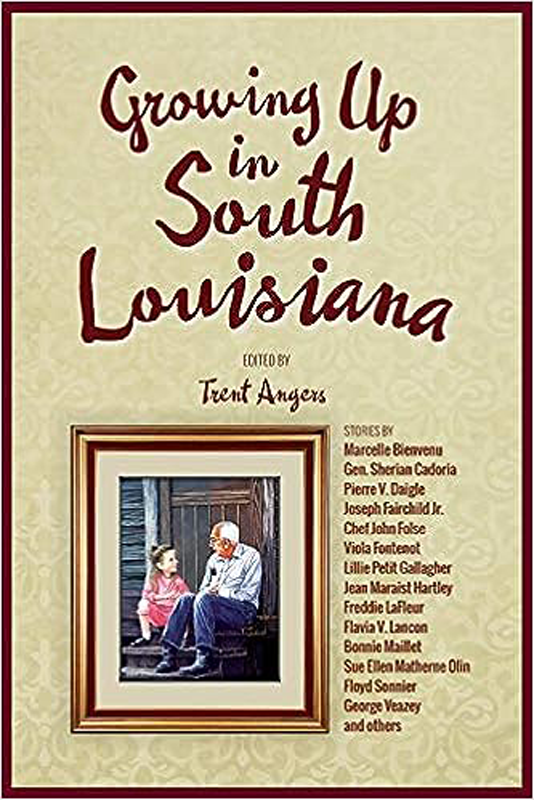
In the early 1970s, she bought an existing oilfield equipment company and changed the name, calling it Black Gold Rental & Supply. “I wanted a new image.” The name incorporates the initials of her sons, Barry and Gordy (B&G). “I like things that mean something – my family always comes first.”
“My husband Keith and I have two sons, five grandchildren, and six great-grandchildren. Every one of our children is involved in education in some way. That’s so important; they’re changing the world. We’re going to celebrate our 60th anniversary in December [2023]. I married the right man,” Maillet says of Keith, whom she met at the age of 14 and married at 18. “He’s my best friend.”
Getting back to her career, she says, “I was always in drilling fluids; I was never a full-service mud company. I was in additives; that’s where the money was.” Spoken like a true businesswoman.
Her second company, Boysenblue, formed in 1979, was named after Keith, their sons, and included her middle name, Blue. Her grandfather, Artis, gave her name after going to see the film Gone with the Wind the night before she was born, which happened to be Mother’s Day 1944.
“I introduced my company in the U.S., then I had the chance to [expand] internationally, but I didn’t want it confused with my domestic business, so I named it Celtec. There were tax incentives for international businesses and I wanted every break I could get because I was making good money. When the government got rid of tax breaks for international expansion, I put the two names together as Boysenblue/Celtec.”
Maillet loved Boysenblue and her work so much, she often said she would “die at her desk,” so it was a bitter disappointment five years ago when her health necessitated selling her company and retiring.
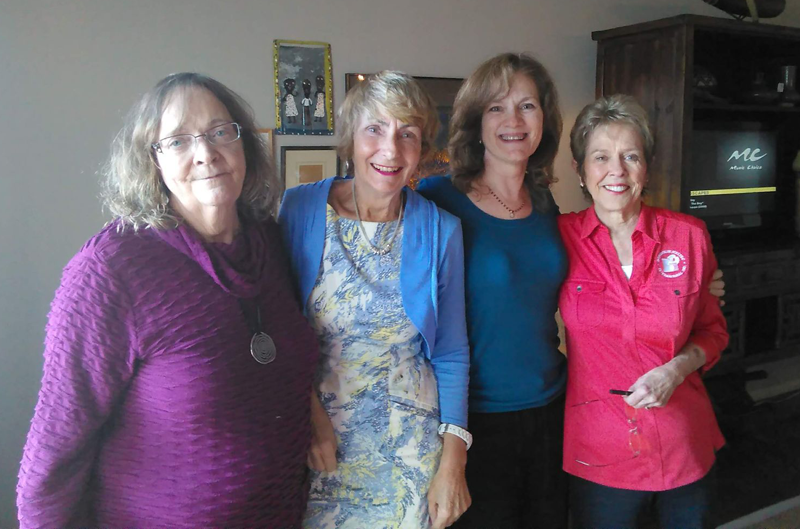
Rebecca Ponton and Bonnie Maillet (L to R) meet in Houston, Texas, to celebrate Thomson’s visit from the U.K. (October 2015). Photo courtesy of Rebecca Ponton.
“I’m bored to death. I’m doing some painting with a friend of mine – we go way back – who’s had a lot of training and we’re doing watercolors. I enjoy it. I’m getting good instruction while I’m working on my hobby.” However, the sting of having to sell her company was eased somewhat by knowing she had passed the torch to Cathy Poiter, her right-hand woman.
Things have come a long way since Maillet started in the oilfield 50 years ago. The 50-year anniversary of Women’s Equality Day was celebrated in August [2023]. In 1973, around the time Maillet bought her first company, there were approximately 400,000 women-owned businesses, according to the U.S. Small Business Administration (SBA). The latest Nonemployer Statistics by Demographics (data year 2019) released from the U.S. Census Bureau reveal that over 12 million women are now business owners.
Maillet’s biography, Quest of the Derrickman’s Daughter, written by W.M. Jolet, was published in April 2012 by Acadian House Publishing. Originally, proceeds from the book went to the Women’s Business Enterprise South with the stated goal of “furthering the cause of promoting entrepreneurship and success in women-owned businesses.” Later, Maillet would go on to donate copies to anyone she thought might benefit from reading about her hard-won path to success.
In the signed copy Maillet gave me, she inscribed the words, “Always love Monday mornings!” When I ask her what she meant, she says, “You’ve got to love Monday mornings. You’ve got to like what you do… and I did love my work.”
Reprinted with permission. This article originally appeared in the Fall 2023 issue of NAPE Magazine. It has been lightly edited in keeping with this magazine’s style guide.
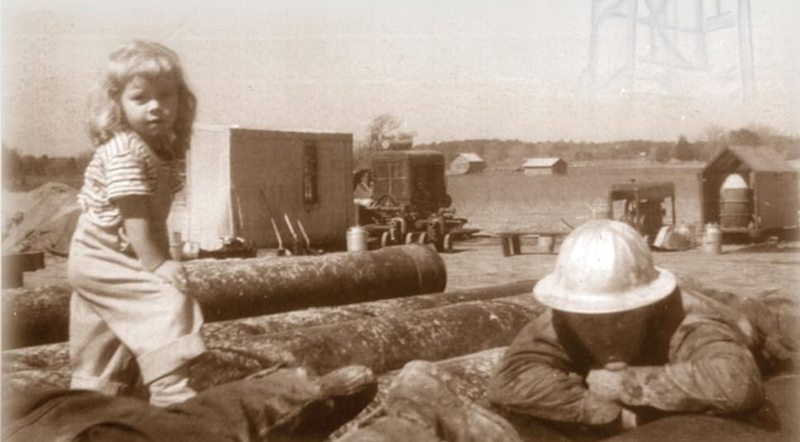
First job – I sold clothes in a Jewish clothing store in Marksville (pop. 4,000), where Paragon Casino is. I never worked at the casino, but I left money there in the past! Speaking of casinos, I did go to one in Nigeria when I was making sales calls. I was the only woman who had ever been there.
Are you a sports fan? – I’m a spectator, not a participant. I like to watch golf with my husband, Keith, because he explains it to me. He was a hell of a golfer and all-around athlete. (He was head basketball coach at two of the local high schools.) My sons are sports fans, too, so if I want someone to talk to, I have to join them.
Favorite book – Queen of the Oil Club: The Intrepid Wanda Jablonski and the Power of Information by Anna Rubino (foreword by Daniel Yergin). I’m getting ready to read it for the second time. When I read it the first time, I knew she was going to be my role model. She was my hero and mentor even though I never met her.
Are you a pet person? – Growing up, I had a pet alligator and a raccoon. I was spoiled rotten by my dad, Arlie. He’d pick up animals at the side of the road and bring them home (“I’ve got you a new pet”). Now, I have a “shihpoo” (cross between a Shih Tzu and a miniature poodle) named Maggie Maillet, who has the most beautiful fur. She is the love of our lives – all 18 pounds of her!
What do you love about Broussard (where you live outside of Lafayette, Louisiana)? The food – seafood gumbo. I have it every Christmas Eve. I have about 28 people over and I have to have enough for everyone. You know what you’re going to find on every [oil] rig? A Cajun and a pot of gumbo!
The title of my memoir would be – Excuse Me, Sir, Do You Love Me?
Volunteer work I was passionate about – I was on the board of directors of Acadiana Youth for abused children that the court had removed from their homes. I loved those children! I would have them to my home for holidays. I’ve got a place in my heart for children.
Four words to describe me – “Eighty-two pounds of dynamite!,” husband, Keith, chimes in.
Something that might surprise people about me – Most of my friends are men. They don’t gossip. I have more in common with them, but I have a couple of girlfriends in the oilfield, too. Separate and apart from work, I like current events. I’d rather watch NewsMAX than Days of Our Lives.
Mentor – I didn’t really have a mentor in the oilfield. Who would it have been? But I had mentors in high school. My history and world geology teacher, Gerard Edwards, was a mentor. Adley Gaspard was the janitor and everybody adored him. He always had time for anybody who needed to talk. My English teacher, Mrs. Laborde, told me I was the person she thought of when she learned the Edwin Markham poem, Outwitted:
He drew a circle that shut me out –
Heretic, rebel, a thing to flout.
But love and I had wit to win:
We drew a circle and took him in.
I’ve taken it with me everywhere I’ve gone in life. I’ve applied that in business meetings. It wasn’t always a cakewalk for a woman in the oilfield.
Best – and worst – advice I’ve ever received – I had three friends, who were older than I was, and were in the oilfield. I asked them what country I should start working with. They told me I should stay right here in the States. I said, “I’m not going to do that.” They said, “That’s what we thought.” The first country I did business with was Trinidad. Amoco had a big office there, and Baroid was there. Their intentions were good, but that’s the advice I never took – and I’m glad I didn’t.
Advice you’d give to someone starting in the energy business – Follow your dreams and don’t listen to anyone who tries to talk you out of them.
What historical figure would you like to meet and why? – Wanda Jablonski!
If you could do another job for a day, what would that be and why? – I would have carried Wanda Jablonski’s luggage!
Book Excerpt
Some months into the job with Superior Chemical, Bonnie was given the opportunity to gain additional valuable insight into the oil industry and to get to know some of the tool pushers in the field without having to travel to all rigs scattered over three states. This unique opportunity came compliments of one of her father’s former bosses, Fred Staggs (aka “Paw Staggs”), the drilling superintendent with Penrod Drilling Company. (Staggs and his wife are one of the couples who provided Bonnie with a place to live for a short while when she was a youngster and her mother was unable to take care of her.)
Bonnie’s new part time job required going into the office at 4:30 a.m. daily and taking morning reports – rundowns of all supply levels and rig activity for the preceding 24 hours – from drilling rigs.
Each of the 17 rigs Staggs ran was scheduled to call in every morning and turn in [its] reports. Staggs trained Bonnie to take the reports. He taught her the necessary oilfield symbols and language – basically oilfield shorthand.
Instead of hearing Staggs’ typical low-groan greeting of, “Penrod,” the tool pushers were suddenly awakened when Bonnie picked up the phone and answered rather perkily, “Good mornin’! Penrod.” A couple of the tool pushers hung up on her. Staggs had to call them back.
“No, no,” he told them. “She’s helping me. I got my own personal clerk. But, I must warn you, she works for a chemical company, so she’s gonna try and sell you something.”
And that was Bonnie’s “in” – a verbal seal of approval from Paw Staggs.
“After a while, these guys got to know me and they looked forward to talking to me,” Bonnie says. “I talked to them about the weather, their family, sports. I’d ask them questions and you wouldn’t believe how much they just liked having someone to talk to. Of course, I played hardball with them, too. I’d tell them, playfully, ‘I’m not taking this report until you place an order for some chemicals.’ And they’d crack and say, ‘Aw, hell, give me two drums of degreaser.’”
As both Bonnie and Anita Dodd began to enjoy success in their sales efforts, they got some publicity in the local newspaper as a team. The [Lafayette] Daily Advertiser, in a 1973 article titled, “Saleswomen break into industry with Superior,” stated: “An area in the oil patch, previously considered a man’s world, has been crashed by two attractive young ladies who are both making a go of it.”
***
Bonnie’s successful entry into oilfield sales was assisted by a handful of women whose husbands were key players in the Gulf Coast oil business.
This group of female supporters focused on getting their husbands to give Bonnie an appointment, so she could try to sell her products. They pressured their husbands into just giving her a chance and hopefully trying the product she was selling.
Bonnie relates the details of one such episode:
“One particular guy was just not following his wife’s lead as she pressured him to give me an appointment. I was meeting with the ladies one day at La Fonda Restaurant [in Lafayette] for lunch to give them an update on my progress.
“Well, in she flies, just about out of breath. She sits down, orders a margarita and says, ‘Well, I think I got that fixed!’
“We were all hanging on her every word.”
‘I just got so mad at him this morning, I said, “Look here Mr. Big Britches! You and I have a daughter, and someday she may need a break like this woman does, and you better pray there’s someone around like you when that time comes!’”
“He gave me an appointment that afternoon.”
Excerpted by permission. Quest of the Derrickman’s Daughter: From the Oilfields of America to the Sands of Saudi Arabia by W.M. Joliet (Arcadian House Publishing; 2012).
Headline photo courtesy of Terri Fensel.
Rebecca Ponton is the editor in chief at U.S. Energy Media and author of Breaking the Gas Ceiling: Women in the Offshore Oil and Gas Industry. She is the publisher of Books & Recovery digital magazine.
Oil and gas operations are commonly found in remote locations far from company headquarters. Now, it's possible to monitor pump operations, collate and analyze seismic data, and track employees around the world from almost anywhere. Whether employees are in the office or in the field, the internet and related applications enable a greater multidirectional flow of information – and control – than ever before.

